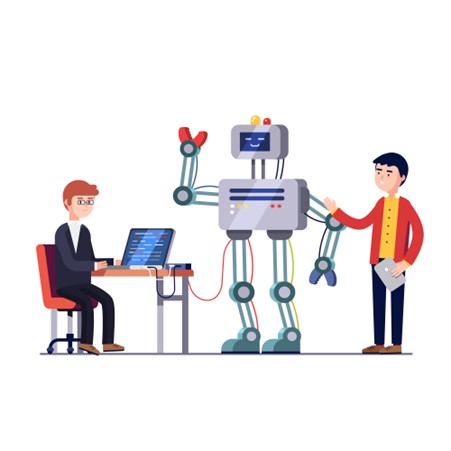
Have you ever wondered why you received that dreaded rejection email after submitting a job application? The answer might lie in the intricate workings of the job application rejection by computers. In today’s technologically advanced world, companies are increasingly relying on artificial intelligence (AI) to streamline their hiring processes. While AI has undoubtedly revolutionized recruitment, it is not without its flaws.
The Impact of AI on Job Seekers in AI centric world
In 2015, Amazon found itself embroiled in a controversy when it discovered that its machine-learning algorithms, designed to expedite the hiring process, were biased against women. Resumes containing the word “women” were inadvertently filtered out, perpetuating pre-existing gender inequalities. This incident highlighted the potential for AI to replicate and amplify existing hiring biases, posing a significant challenge for job seekers. Unfortunately, Amazon’s case is not an isolated incident, as numerous examples of AI hiring discrimination continue to emerge.
4 Ways That AI Is Impacting the Job Market
1. Enhanced Decision Making:
AI systems have the capability to analyze vast amounts of data and provide valuable insights for decision making. This has significantly impacted sectors like finance, healthcare, and marketing, where AI algorithms can predict market trends, optimize investments, diagnose diseases, and even create personalized marketing campaigns. As a result, professionals in these fields now require a deeper understanding of AI technologies to leverage its benefits effectively.
2. Machines Will Replace Humans:
Machines are set to replace humans, as indicated by a research conducted by Oxford University. The study predicts that within the next decade, artificial intelligence (AI) will take over 40 percent of employee jobs. This shift is primarily driven by the widespread use of computers and software by employees in various industries. In order to meet the increasing demands of customers, organizations need to embrace automation and integrate it into their operations.
3. Transformation of Traditional Industries:
AI is transforming traditional industries by enabling innovative solutions and business models. For example, in the transportation industry, autonomous vehicles are set to change the landscape of logistics and delivery services. Similarly, in the retail sector, AI-powered recommendation systems enhance customer experiences by providing personalized product suggestions. This transformation necessitates upskilling and adapting to new technologies for professionals within these industries.
4. Automation of Repetitive Tasks:
AI has the ability to automate repetitive and mundane tasks, allowing employees to focus on more complex and strategic aspects of their jobs. This has led to increased productivity and efficiency in various industries such as manufacturing, logistics, and customer service. However, it’s important to note that this automation may lead to job displacement in certain roles.
Unveiling the Errors of AI in Hiring Decisions
AI can unwittingly introduce biases and discriminatory practices throughout the hiring process. By recognizing these potential pitfalls, job seekers can take proactive steps to mitigate the impact of AI-driven rejections.
1. Misunderstanding Resume Time Gaps
AI filters may erroneously exclude candidates with employment gaps on their resumes. Rather than automatically disqualifying resumes that account for these gaps, AI should consider the explanations provided. Job seekers can ensure their resumes are not unfairly dismissed by providing brief explanations for any periods of time off.
2. Inadequate Understanding of Facial Expressions and Speech Patterns
AI is not infallible when it comes to interpreting facial expressions and speech patterns. Darker skin tones, for instance, may not be correctly interpreted by AI, leading to potential biases. Additionally, individuals with neurodivergent traits or speech impediments may face unjustified disadvantages during AI interviews. If you encounter any of these issues, it is advisable to reach out to the human recruiter directly and request accommodation.
3. Social Media Screening
Employers often employ automated technology to scan candidates’ social media profiles. While this practice is intended to gain insights into a candidate’s character, it can also lead to unintended consequences. To safeguard against potential negative impacts, job seekers should keep their personal accounts private and remove any content that may create a wrong impression.
Overcoming AI’s Mistakes: Strategies for Success
If you suspect that an AI-driven rejection played a role in your job application outcome, it is essential to take proactive measures to rectify the situation. There are still some jobs which AI can’t replace. By following these strategies, you can increase your chances of success and surpass AI:
1. Reach Out to the Company
Contact the company directly to express your concerns if you believe an AI filter unfairly rejected your application. Many companies obtain their AI hiring filters from third-party vendors and may not have an in-depth understanding of the technology’s inner workings. By reaching out, you can shed light on the potential biases and seek a fair evaluation of your qualifications.
2. Utilize Follow-Up Emails
Even if you initially received no response, do not assume it is a rejection. Sending a follow-up email to a human recruiter with your resume attached can make a significant difference. In some cases, this proactive approach has resulted in job offers despite initial AI-driven rejections. Maintaining a human connection throughout the hiring process can help distinguish you from other candidates.
Conclusion:
In the realm of job applications, the clash between AI and human elements is inevitable. Understanding the intricacies of both sides equips job seekers with the tools needed to decode the hidden reasons behind application rejections. Embracing the symbiotic relationship between technology and human intuition is the key to not just surviving but thriving in the era of AI recruitment.




